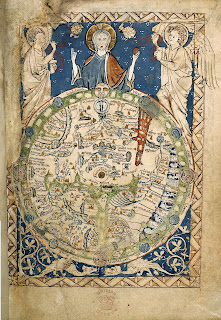Faith, Doubt and Anti-Metanoia series, Part IX. For context, start at the introduction.
I was a Christian but then I stopped being one (Part I); way more on that in Parts II through V. I found meaningness.com (summarized in Part VI) which reformed how I process meaning. Christianity was a big part of my identity, so I had to gain new ways of seeing my identity (Part VII). I had some really bad trouble along the way when I had a brush with nihilism (maybe you can avoid that, see part VII).
I'm still getting used to my new ways of interacting with meaning and on the surface the new ways can seem worse. This post attempts to defend of my new approach (called the Complete Stance) against three possible objections that could come from someone immersed in a belief system similar to what I once held (Eternalism):
- The first objection is "where do meanings come from?",
- the second is about how to build and sustain community and
- the third is about staying positive in the face of nebulosity.
- The origins of meanings are often obscure, but that doesn't invalidate the meanings themselves.
- Community is harder to build without the artificially fixed meanings of Eternalism, but it's still possible.
- Meaning is real even if it's nebulous, so cheer up. Take care of your self and realize that other metaphysical approaches face other difficulties.
Photograph of a model of the Trinity Gadget (part of an atomic bomb) by Marcin Wichary, used under the Creative Commons Attribution 2.0 Generic license.
In this post, I assume familiarity with terms from meaningness.com, especially:
- "Eternalism" describes the metaphysical error of considering meaning to be absolutely definite and eternally fixed. Examples of Eternalist systems include certain flavors of Christianity, Islam and Communism.
- "An Eternalist" is someone who follows an Eteralist system. For example, me in 2010.
- The Complete Stance is the position of embracing meaning as being both patterned and nebulous. This requires rejecting both Eternalism (that meaning is fixed and real) and nihilism (that fixed meaning cannot be real). Pattern and nebulousity are blended and fused together, like hills that flow and clouds caught in a photograph.
Beauty in the nebulous: clouds over ESO’s La Silla Observatory. Photograph by A. Fitzsimmons, courtesy of ESO, used under the Creative Commons Attribution 4.0 International license. The clouds are obviously nebulous, but for short time periods, they appear fixed. The hills are obviously fixed, but over long time periods, they morph, crumble and appear nebulous.
Getting comfortable accepting meanings without knowing all the ‘whys’
One class of objection to the Complete Stance, from the Eternalist perspective, is to ask where certain meanings come from, usually starting with morality. This section discusses such objections.
I thought that Christianity owned morality. I gave an example in Part I of a metal singer who lost his moral compass when he lost his faith and he tried to hire someone to kill his wife. His understanding of morality was subject to his Christianity. Having someone drifting through society without any morality is a big problem! So an Eternalist should ask serious questions of anyone who denies that Eternalist's system's very foundation of morality itself: "If you reject God and the Bible, then what's stopping you from doing whatever you want?"
But it's not just morality – I thought that Christianity owned all meaning, hence the fear that nihilism is the only alternative. Here’s a quote from Chapman’s page on No Eternal Meaning: “…that gloomy guff about the end of time is verbatim from perhaps the greatest nihilist manifesto ever written, by William Lane Craig.” The hairs on the back of my neck stood on end when I read that, because William Lane Craig is a Christian apologist and philosopher. When I was a Christian, I was also an unwitting nihilist apologist, if only to myself.
The threat of nihilism means that removing the Eternalist system puts the existence of all meanings at risk. The first step in the dance of dodging nihilism is to accept that many meanings still exist despite the absence of the Eternalist system. By studying meaningness.com, I see the obvious patterned-but-nebulous meanings, if I can stop myself from actively engaging in nihilism. Suppose such a line of argument: the existence of meaning is as plain as the nose on one's own face. I think we can still genuinely ask: when meanings don’t come from a favored Eternalist system, where do they come from? An Eternalist would identify this question as a weakness of the path of the Complete Stance.
Eternalism enforces a Procrustean simplification of the origins of meaning, so it shouldn’t come as a surprise that a more accurate view of the origins of meaning would be more complicated, more confusing, less pithy and significantly less catchy. Instead of finding a skeleton key that explains all meanings, we struggle with long and complicated explanations for the origins of each particular meaning. Many meanings have obscure origins. Some meanings emerged in the evolution of human biology or culture. For example, maybe we came to value moral behavior because of group selection pressure. But we didn’t somehow evolve an accurate philosophical justification for morality — all we got was a tendency toward supernatural religion! Probing the origins of meanings is useful and creating new theories of their origins can enrich those meanings. For example, creating a new ethical framework can sometimes be useful.
In the end, we have to be willing to accept a degree of nebulousness in the origins and justifications of meanings. We can make a lot of progress with evolutionary or memetic arguments and analysis specific to a particular domain of meaning, but we won’t (and can’t expect to) find a final and definite answer. If we did seem to find a final answer, then we probably accidentally slid into Eternalism. That Eternalism could be a kind that we can readily identify ourselves, a kind that we don’t know ourselves but is actually old or perhaps we invented a new kind of Eternalism that was previously unknown. (I suppose Karl Marx is an example of someone who synthesized a new form of Eternalism. Sorry, world.) So, for the adherent of the Complete Stance, we have to grant meanings without always knowing the “why” behind each meaning.
We also find the same depth of mystery in physics. Why is there gravity? Why does the strong nuclear force have 3 color charges while electromagnetism has only 2 polarities? Why did the universe begin? Physicists may make progress on some of these questions or even bring them to tidy conclusions. But for now, we accept the content of physics (at least tentatively) without knowing all the whys. In the same way that we can take physics and make use of it in engineering, despite the missing ‘whys,’ we can take meaning and make use of it in engaging with our community and living a full life. Existence is independent of justification. Wikipedia tells me that there are several competing theories for the origin of Earth’s moon. We can't say exactly why the moon is there, but it’s definitely there! The origins and justification for morality may be obscure, but that doesn’t mean that we have to reject morality. Similar reasoning applies for meanings other than morality.
This conclusion will not be satisfactory to the Eternalist. The Complete Stance does not reclaim meaning in the same shape that the Eternalist seeks. To extend the shape analogy, if you are looking for a living creature, actually a mastodon, and I present you with an elephant, saying “here it is,” then in some ways, you would be right to object that I have not found you a mastodon. But the original question contains a mistaken assumption. The proposed answer is the right answer to the projection of the original question onto the space of actually answerable questions. The Eternalist asks “Without my Eternalist System, where do meanings come from?” and she or he means absolute, eternal meanings (a living mastodon), but the answer is of nebulous-plus-patterned meanings (the elephant).
Stealthy elephant, photograph by Byrdyak, used under the Creative Commons Attribution-Share Alike 4.0 International license.
Missing community
One key dimension of meaning is creating and reinforcing community. Eternalism is a fantastic tool for forging community; perhaps that could be viewed as Eternalism's evolutionary 'purpose.' The cost of minimizing group membership / identity beliefs (refer Part VII) is that you miss out on being a member of a fanatically well-knit group! Joining a church is to gain community the fast way. Actually, that’s a big part of why I do go to church. But I will never completely belong inside the doors of a church because I fail to make the group membership assertions that contravene reason. When I was a Christian, it seemed like Atheism was “the opposing team.” But now that I am no longer a Christian, it’s definitely not the case that I’ve joined a team. And I’m not particularly against Christianity now; publishing this series is the high water mark of my opposition. Being a Christian is like being part of a perfect silicon crystal lattice, but as “not a Christian,” I’m a helium atom floating by myself through the void, unconnected to all the other helium atom atheist/agnostics out there.
Photograph of a silicon crystal by Simon Fraser University Public Affairs and Media Relations, used under the Creative Commons Attribution 2.0 Generic license.
Away from the roaring hot bonfire of Eternalist Community, one has to make do with communities that are linked together with weaker, less intoxicating meanings. I continue to get wonderful value from being a member of my extended family and from being a husband and a father. I have befriended people through various avenues. I also get meaning from my work, where I am an employee and a shareholder in a publicly traded, limited liability company. My company successfully coerces some Eternalist-style meanings but I can reasonably easily cut through those façades and focus on doing practical work that benefits customers. I’m a citizen of a country. That country has some amazing successful Eternalist mythology but I can still participate by following the laws, paying my taxes and receiving the benefits of peace and infrastructure that the government supplies. In the end, I have community in many different forms.
One key is to accept community without requiring agreement. The Catholic Church “excommunicates” people who deny the tenets of the faith, that is, they deny that person communion, which is not only withholding the sacrement, it’s excluding them from the community. I do exactly the opposite: I offer bread and friendship to those who whole-heartedly disagree with me. By escaping the bind of basing community on shared assertions, I can refocus on the practical problem of making sure that I have and supply social support. I do not require or expect my friends to validate my beliefs with their agreement.
I haven't yet found a community specifically designed to help stabilize the Complete Stance, except perhaps Evolving Ground. I'm investigating Evolving Ground, but for me it has the significant downside of being Buddhist, at least ostensibly. The phrase "Complete Stance" was only recently invented, so perhaps some organizations do similar things under a different banner.
Emotional dynamics of facing nebulosity
It’s one thing to theoretically embrace the nebulous side of meaning, but it’s another to feel ok about it. Maintaining a cheerful outlook is important. In some ways, living out the Complete Stance is like balancing on a fence, teetering on the edges of both Eternalism and nihilism. Accidental momentary dips on the nihilist side are going to happen, especially for the inexperienced. What if the truth of reality was an unfit meme (in the original sense of the word)? Living outside Eternalism can be bad for you; it certainly is in those times and places where you get beheaded for being an apostate or burned at the stake for heresy. But even in a liberal democracy, living with one’s eyes really open to the nebulous nature of meaning can put one in friction with others and even one’s self.
For me, maintaining the Complete Stance takes deliberate, conscious effort and it’s an uphill emotional battle. Eternalism just feels so damn good. I really want everything in life to be coherent and be perfectly and completely meaningful. It took me decades to fully accept that "all" in natural language doesn't mean the same thing as universal qualification in mathematics. In addition to living most of my adult life inside an Eternalist system, I also unconsciously aimed my career away from the nebulous. I studied electrical engineering and got a job in software. With engineering and computers, I tried to hide from the nebulosity. Bits are either zero or one, no ambiguity. (It's obvious in hindsight, but nebulosity is still definitely present! People are involved and even individual bits in memory can accidentally switch state from cosmic rays.)
How can one gather the emotional energy required to stabilize the Complete Stance on an ongoing basis? Knowing on an intellectual level that meaning exists without Eternalism helps. When one rejects the phony absolute meanings of Eternalism, there can be a loss of comfort along with the loss of certainty. However, because non-absolute meanings really do exist, we can reap their emotional benefits.
Body and mind self-care are both deeply important, but that's true regardless of one's metaphysical outlook. Here are a few suggestions based on my own self-care practices:
If the practical problems with your self were better solved, wouldn't that make the metaphysical concerns easier to bear, or maybe even disappear entirely? I guess it works both ways: if one can figure out how to chill out about the metaphysical worries, then there's more mental space to deal with whatever else is happening in one's life. Ultimately, it makes sense to take a multi-pronged approach to feeling better: accept meaning as real and go for a long run (one example).
Actually, the Complete Stance offers me some emotional benefits of its own. I don't need to constantly hold the pose of defending my Eternalist system. For most of the time I was an Eternalist, I wasn't holding a defensive posture, because I didn't feel like my system was under attack. But once doubts in Christianity set in, it was work to resist them. Now, I'm free to relax: Meaning isn't going to fall apart if I stop trying to hold it together. Being free of my Eternalist Christianity lets me sample the smorgasbord of the world's ideas and techniques without concern for their religious provenance. For example, I can do yoga as exercise without feeling threatened by some latent Hinduism. Furthermore, from an emotionally well-defended adoption of the Complete Stance, one can use aspects of both nihilism and Eternalism as cute play things. For example, in music, I enjoy bands like Nine Inch Nails and Slipknot that often put on nihilist-type poses, and also Christian bands that obviously raise an Eternalist flag.
In order to further dismantle my aversion to nebulosity, I ask myself: when does nebulosity work against me? And when does nebulosity work for me? The answer to the first question seems more obvious: I feel like nebulosity works against me pretty much all the time. My wife says I don't like it. Maybe the second question is a more interesting approach. Here's one approach: I realized that every day, the patterns of meaning in my life fade out into nebulosity and then disappear completely – in sleep! Dreams are an inversion of the usual patterns of waking thought, sort of trading nebulosity for pattern and vice versa. Dreamless sleep is a kind of nirvana, free from any entanglement with meaning. But not exactly, because one wakes up again and finds the body healed and the head clear – pattern hiding inside the nebulosity. There are many other instances where the nebulous is aligned with my own interests, like when other people understand me when I grunt and gesture vaguely. Perhaps it's also useful to invert the search and try to align my interests with the forces of nebulosity that exist in the world, riding the flow of meaning and laughing at the thrilling turbulent rapids of the vague.
Photograph of white water on the Cheakamus River by Ruth Hartnup, used under the Creative Commons Attribution 2.0 Generic license.
Conclusion
It might be work to do meaning in better ways, but the reward is to live veridically, in harmony with reality instead of insisting that my cute map is identical to the dirty ground.
The Psalter world map, complete with dragon locations. Public domain.
My hope is that practice will improve my techniques of working with meaning and that the obstacles will feel less daunting in time. In the ideal case, I will look back on this blog post and cringe at how ham-handedly I distorted this subject matter. Mai j'ai essayé.



_-_SFU_PAMR.jpg)
.jpg)


.jpg)

